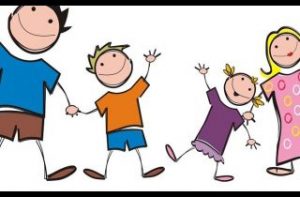 It is not what you do for your children, but what you have taught them to do for themselves, that will make them successful human beings. ~Ann Landers
It is not what you do for your children, but what you have taught them to do for themselves, that will make them successful human beings. ~Ann Landers
When I work with parents to get organized, I notice that some of them do way too much for their kids. I think they truly believe they’re being helpful – and in large part they are. But for some overly sheltered children, an unintentional consequence is learned helplessness, a condition pioneered by psychologist Martin Seligman. Of course that is not what these well-meaning parents intend.
For example, in my ultra-safe, upscale community, parents’ cars line up at bus stops to drive their children home. What’s wrong with that? The kids are pre-teens and teens, and the walk home is not far. What are some of them learning? Dependence, laziness, unseen opportunities for a little exercise and perhaps fear.
Years ago I worked with a seven-year-old boy to organize his bedroom. His mom told me he had a little difficulty parting with things. I discovered that was an understatement! In his very large bedroom were lots and lots of stuffed animals and, when he opened the door to his very large closet, toys and games were piled to the top and a bunch of things tumbled out! We began sorting toys with a goal of getting rid of some. He held each item for a long time. After a long while he let go of one McDonalds toy and one Matchbox car. I could see his anxiety growing so I stopped the session. He exhibited behavior similar to that of hoarders I’ve worked with and needed more help than I could give him. I wondered if he’d ever been taught to get rid of anything.
When I teach kids (so far as young as five) to organize their rooms, toys and clothes using age-appropriate systems and principles, generally they are energetic and anxious to learn. However, when parents do everything for them or just ignore their messes, children don’t learn responsibility or independence, critical life skills.
School’s out for the summer so this is an excellent time to teach kids age-appropriate tasks. “Research shows that doing chores as a child is a predictor of professional success. If we don’t teach children that life requires a willingness to do crummy stuff, we are not giving them the tools it takes to thrive,” according to Julie Lythcott-Haims, author of How to Raise an Adult.
It’s never too late to start, even if your kids are older. In fact, I’ve worked with 80-somethings to start getting organized! How much easier would their lives have been if they’d learned it decades earlier?
Here are 16 tips parents should know when teaching children about being organized.
- Organizing is a critical life skill that everyone should learn.
- Consistency is key to create new habits, such as putting dishes in the dishwasher after meals.
- Everyone likes to feel appreciated so praise your child when s/he does well.
- If a system doesn’t work, blame the system and adjust it to fit your child.
- Avoid telling kids to “clean their room.” They don’t know what you mean. Be specific about what you expect and how to do it.
- Each family member should help to declutter or, better yet, prevent clutter from building.
- Toddlers can hang coats on low hooks when they come home and put away toys in picture-labeled open containers or on shelves.
- Elementary-school kids can do everything a toddler does plus make their bed, put away their clean clothes, put dirty clothes in the hamper and dress themselves. Writing and posting the specific tasks make them easier to follow.
- For tweens, add larger tasks like doing laundry and cleaning the bathroom.
- For teens, add still larger tasks like running household errands and organizing storage areas.
- Teach the importance of donation and perhaps visit a thrift store with your child.
- Constantly purge as toys and clothes are outgrown.
- Create zones in the house for each activity, such as doing homework in the kitchen (for young kids) or bedroom, and toys in the playroom. Keep what is needed for each activity in those spaces.
- Put a trash or recycle bin in convenient spots where your kids hang out at home because they don’t get up to throw things away.
- Divide household tasks among all family members according to age and ability so everyone participates.
- For tasks that take only a couple of minutes, such as folding a load of laundry, do them right away.
Consider all the things you do for your children. Then consider what they can (should) do themselves. Your children may not appreciate the value of getting organized and even argue with you about doing tasks. Be firm yet gentle. From my own experience being raised by two organized parents, I know they’ll thank you later. However, if nothing above motivates you to take action, this should: You probably don’t want your kids living with you for the rest of your life!

